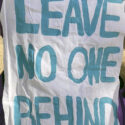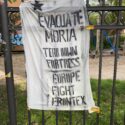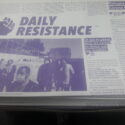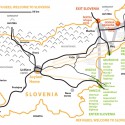Tag: lesbos
-

Urgent Call from Moria Camp for Help in Corona Times
Update 2/9/2020: This call was the second open letter to the EU and its member states to evict the Moria camp on the greek island of Lesvos in face of the pandemic threat. The inhabitants of the overcrowded camp have not received any answer so far, while everyone on the spot, including the support initiatives…
-

REFUGEES IN CORONA DAYS
This time, we publish our newspaper – which is the own voice of the refugee movement – as a special issue.
-

DR #7 published!
Update (10 August): The issue has been delivered and can now be picked up in Café Karanfil! You can also download and read a digital PDF version here: The issue consists of stories, statements and testimonies of people in isolated European lagers during Corona times. Languages of the texts this time: Turkish, Arabic, Urdu, Italian,…
-

Hungary closes its borders
On October 15 2015 Hungary finally decided to close its border passage Botovo with Croatia, where the “more formal coridor” for the flow of people, temporary established by inter-governmental agreements, took place, changing the direction of the so called balkan route. Instead of going through Croatia to Hungary the route is redirected to Slovenia, where…